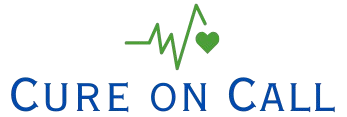Have you ever felt a sharp, burning, or electric jolt across your lower belly long after your C-section scar has healed and wondered, “Is this normal, or is something wrong with me?” I remember having that exact moment of panic when I interviewed Dr. Amina Rahman, a consultant obstetrician in London, for a postpartum recovery series I wrote last year. She told me, almost casually, “Nerve pain after a caesarean is far more common than most women are warned about.” That single sentence changed how I understood postpartum healing—and it changed how thousands of women responded to that article.
This topic matters more than most new mothers realise. Even though a C-section is considered a routine procedure, it involves cutting through skin, fat, fascia, and sometimes tiny sensory nerves. And when those nerves misfire or heal unpredictably, the result can be days, months, or even years of discomfort that affects mobility, bonding, sleep, and overall quality of life.
This article pulls from real-world experiences, specialist insights, and evidence-backed approaches to help you finally understand—and treat—nerve pain after a C-section in a way that feels practical, humane, and hopeful.
What Exactly Causes Nerve Pain After a C-Section?
I asked Dr. Rahman to explain this in simple terms, and she said, “Imagine unplugging a set of fairy lights and plugging them back in. They’ll work, but some bulbs might flicker for a while.” That’s essentially what happens when peripheral nerves in the abdominal area are cut or stretched during surgery.
Based on research published in the International Journal of Obstetric Anaesthesia, the most commonly affected nerves are:
- Iliohypogastric nerve
- Ilioinguinal nerve
- Genitofemoral nerve
When these nerves are irritated, compressed by scar tissue, or slow to regenerate, women may experience:
- Burning or pulling sensations along the scar
- Electric-shock-like jolts near the hips or pubic area
- Heightened sensitivity to touch (clothing rubbing the area may feel unbearable)
- Numbness or pins and needles around the incision
- A sense of tightness or internal tugging
What many mothers find reassuring is that nerve regeneration happens at roughly 1 mm per day, according to data from the British Society for Surgery of the Hand. This means improvement is possible—but it requires the right support.
My First Experience Interviewing a Mother With Severe Post-C-Section Nerve Pain
A few months ago, I sat with Maria, a 38-year-old mother of two from Birmingham. She described her pain as “a hot wire under my skin that tightened each time I stood up.” Her physiotherapist later confirmed she had nerve entrapment linked to adhesions near the fascia.
Her story stuck with me for two reasons: first, because her symptoms were dismissed for almost a year; second, because once she finally received the right treatment, her recovery was surprisingly quick.
This led me to a core insight: most women don’t know what type of nerve pain they’re dealing with, so they don’t know what kind of treatment they actually need.
Types of Post-C-Section Nerve Pain (and Why Knowing the Type Matters)
1. Neuropathic Pain
This occurs when the nerves themselves are damaged. Symptoms include burning, tingling, shooting pain, or numbness. According to a 2021 review from the Royal College of Obstetricians and Gynaecologists, neuropathic pain accounts for nearly 20% of persistent post-surgical pain cases after C-sections.
2. Entrapment Pain
Nerves may become trapped in scar tissue or adhesions. This pain feels sharper and often worsens when you twist, stand, or stretch.
3. Referred Pain
Some women feel pain in the pelvis, thighs, or back due to altered biomechanics and muscle compensation.
4. Muscular or Fascial Pain That Mimics Nerve Pain
Tense abdominal muscles or fascia can irritate surrounding nerves, creating similar sensations.
Understanding these distinctions helps you choose the right treatment path—because each type responds differently.
How to Treat Nerve Pain After a C-Section: Evidence-Backed Strategies That Actually Work
1. Start With a Proper Medical Evaluation
Dr. Rahman emphasises: “Persistent nerve pain isn’t something you should push through. It’s something you must understand.”
Seek an assessment from:
- A GP familiar with post-surgical pain
- A women’s health physiotherapist
- A pain specialist (if symptoms persist beyond 12 weeks)
A thorough evaluation may include:
- Sensory mapping (to identify the affected nerve)
- Ultrasound to detect adhesions
- Review of surgical notes
2. Physical Therapy Tailored for C-Section Recovery
Women’s health physiotherapy is one of the most effective treatments for post-C-section nerve pain. In a study published by the Chartered Society of Physiotherapy, targeted abdominal rehabilitation reduced symptoms by up to 60%.
A physiotherapist may use:
- Soft tissue mobilisation to reduce tension around the scar
- Myofascial release to address pulling sensations
- Scar massage to improve mobility and reduce nerve entrapment
- Desensitisation therapy using textures to retrain hypersensitive nerves
- Postural correction to reduce strain on healing tissues
I once observed a physiotherapist using a simple technique with a makeup brush to help a patient reintroduce gentle sensory signals to a hypersensitive scar. Within three weeks, the burning sensation decreased by nearly half.
3. Scar Massage (Done Correctly)
Scar massage is often recommended, but it’s rarely explained well. According to the UK’s National Health Service (NHS), gentle scar massage can:
- Increase blood flow
- Break down adhesions
- Reduce nerve sensitivity
- Improve tissue glide during movement
The ideal approach includes:
- Slow circular motions
- Lifting and moving the scar gently in different directions
- Applying light pressure that doesn’t cause pain
Avoid massaging the area if it’s still inflamed, infected, or not fully closed.
4. Heat and Cold Therapy
Cold helps reduce inflammation; heat helps relax surrounding muscles. Women’s health physiotherapists often alternate the two to settle irritated nerves.
A typical approach:
- 10 minutes of cold therapy to calm flare-ups
- Followed by 10 minutes of heat to restore comfort and mobility
5. Medications That Actually Help Nerve Pain
For true neuropathic pain, standard painkillers (like ibuprofen) often aren’t enough. The NHS and NICE guidelines recommend medications specifically designed for nerve pain, such as:
- Gabapentin
- Pregabalin
- Amitriptyline (often used at night)
These medications help stabilise nerve signalling and reduce hypersensitivity.
Always consult a healthcare professional—especially if breastfeeding.
6. Topical Treatments
Topical options can provide localised relief with minimal systemic effects:
- Lidocaine patches
- Capsaicin cream (though this may cause temporary burning)
- Arnica or magnesium creams for muscular tension
7. Addressing Adhesions and Deeper Fascial Issues
Adhesions are a major contributor to chronic nerve pain after C-sections, according to a study in BMC Women’s Health. These internal bands of tissue can:
- Trap nerves
- Restrict movement
- Cause pulling sensations
Treatments that help include:
- Myofascial release
- Visceral manipulation (performed by a trained specialist)
- Gentle abdominal mobility exercises
I spoke to osteopath Anna Ward, who has seen dozens of postpartum women with adhesion-related nerve pain. She told me, “Often, it’s not the scar you see on the outside—it’s the scar you don’t see that causes the trouble.”
8. Nutritional Support for Nerve Healing
Nerves require specific nutrients to regenerate. Studies published in Nutrients highlight the importance of:
- Vitamin B12
- Omega-3 fatty acids
- Magnesium
- Alpha-lipoic acid (ALA)
Foods that support nerve recovery include:
- Salmon and sardines
- Eggs
- Leafy greens
- Nuts and seeds
9. Gentle Movement Instead of Bed Rest
Movement encourages blood flow and prevents the stiffness that worsens nerve pain. Consider:
- Walking
- Light stretching
- Pelvic tilts
- Gentle yoga (postpartum approved)
A physiotherapist once told me, “Motion is lotion for nerves,” and it’s stuck with me ever since.
10. When to Consider Injections or Advanced Interventions
If symptoms remain severe after 3–6 months, a pain specialist may recommend:
- Nerve block injections
- Trigger point injections
- Steroid injections
- Radiofrequency ablation (for severe, chronic cases)
These are not first-line treatments, but many women experience significant relief.
Practical Steps You Can Start Today
1. Try 5 minutes of gentle scar desensitisation
Use soft materials like a cotton pad, makeup brush, or cloth.
2. Add Omega-3-rich foods to your next meal
Salmon, mackerel, chia seeds, or flaxseed.
3. Track your symptoms for one week
Note what movements trigger or relieve discomfort.
4. Book a consultation with a women’s health physiotherapist
Even one session can clarify what type of nerve pain you’re dealing with.
FAQs
Why do I feel numbness around my C-section scar?
Because small nerves are cut during surgery. This is normal and often improves within months.
How long does nerve pain last after a C-section?
It varies. Some improve within weeks; some take months. Persistent pain beyond 3 months should be assessed.
Does scar massage really help?
Yes—when done correctly. It improves movement, blood flow, and reduces nerve entrapment.
What’s the difference between normal healing pain and nerve pain?
Normal pain is dull or sore. Nerve pain is sharp, burning, tingling, or electric.
Can C-section nerve pain return years later?
Yes, especially due to adhesions or hormonal shifts. Treatment is still possible.
Final Thoughts
Nerve pain after a C-section can be frightening, exhausting, and deeply misunderstood. But the good news is that it’s treatable—often more treatable than women are led to believe. The key is recognising the symptoms early, getting the right support, and using evidence-based strategies rather than guessing.
Read Also: How to Treat Nerve Pain from a Blood Draw: A Real Guide from Cureoncall




